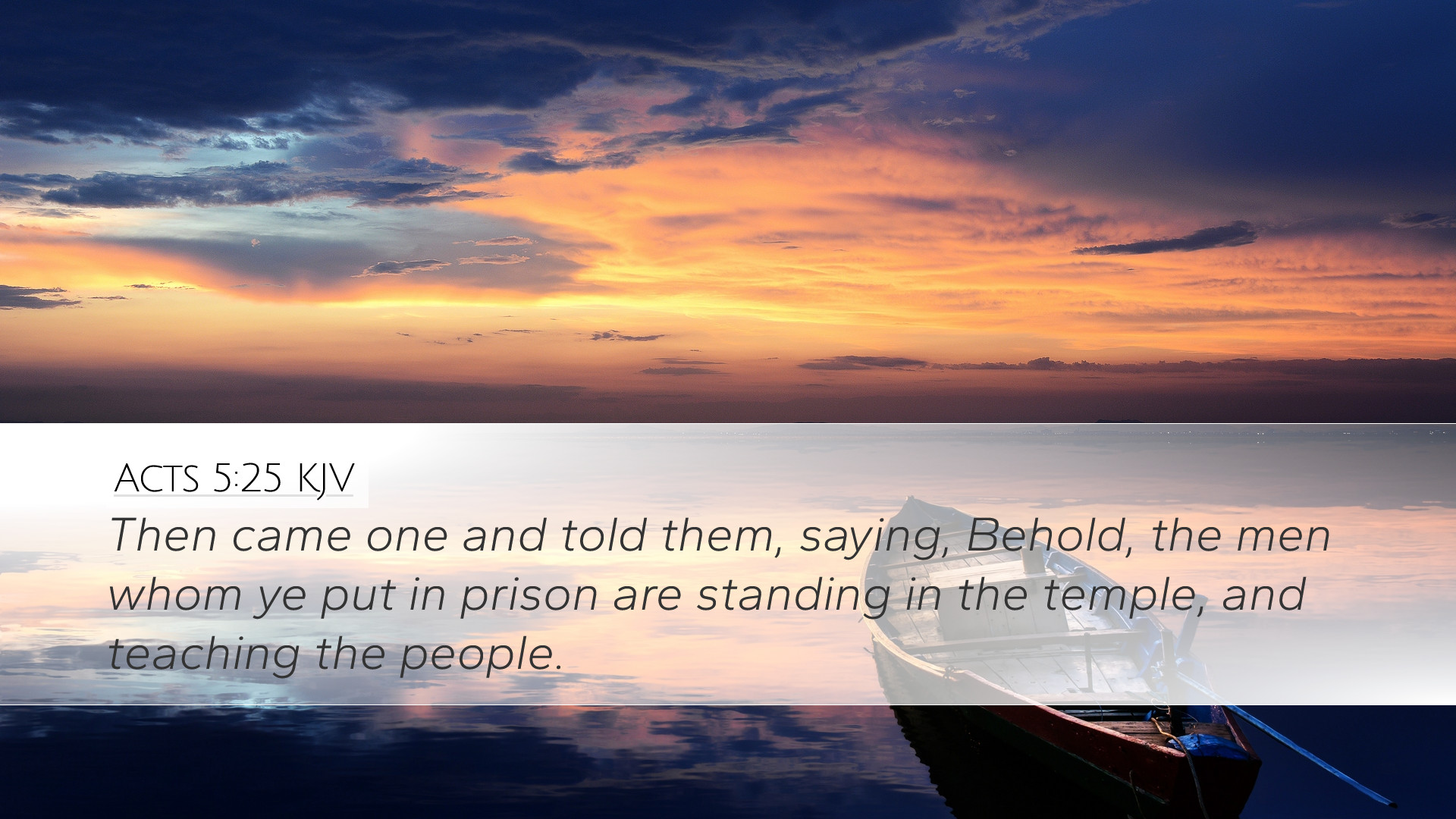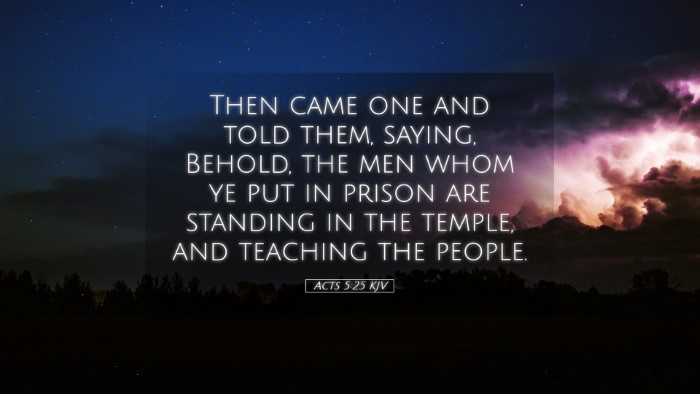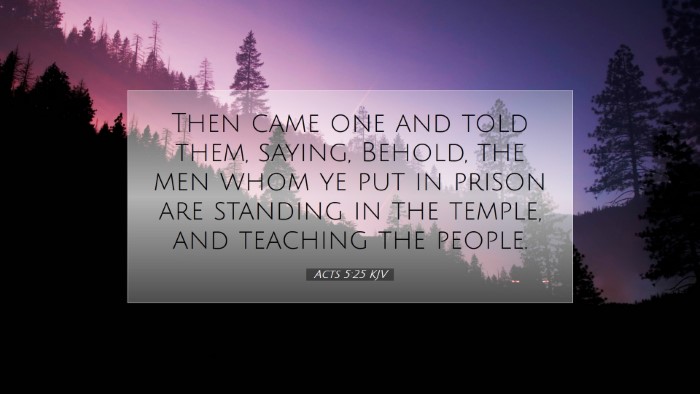Acts 5:25 Commentary
Bible Verse: Acts 5:25 - "And someone came and told them, 'Look! The men whom you put in prison are standing in the temple and teaching the people!'"
Contextual Background
The passage from Acts 5 represents a pivotal moment in the early Church when the apostles faced persecution from the religious authorities. This chapter illustrates the courage of the apostles and the divine support they received amidst opposition.
Commentary Insights
1. The Arrest and Imprisonment
In the preceding verses of Acts 5, we see the apostles imprisoned for preaching the gospel. This act demonstrates the escalating tension between the new movement of Christianity and the established religious order. Albert Barnes notes that this imprisonment was due to jealousy and fear of losing their influence, as the apostles’ ministry was gaining significant traction among the people.
2. Divine Intervention
The narrative quickly shifts when an angel of the Lord frees the apostles from their captivity. Matthew Henry emphasizes that this miraculous release illustrates God's commitment to His mission and His servants, highlighting the theme of divine intervention. The apostles, though threatened, are released to continue their work rather than being silenced, representing the unstoppable nature of God’s purpose.
3. The Continued Teaching
Acts 5:25 depicts the apostles standing in the temple, boldly teaching the people. Adam Clarke comments on the significance of their location; the temple was a central hub for Jewish worship and teaching, and choosing to preach there signifies a direct challenge to the authority of the Sanhedrin. Their actions exemplify the apostles’ commitment to their mission, as they prioritize the message of Christ above personal safety.
4. The Reaction of the Authorities
This verse also captures the surprise and alarm that the authorities must have felt upon hearing the report of the apostles’ continued activities. Here, we see the interplay between human authority and divine mandate—while earthly rulers sought to suppress the message, God’s will prevails. Henry further notes that this report serves to demonstrate the futility of attempting to silence God's messengers. The phrase "look!" signifies both disbelief and amazement at the stark contrast between the intended confinement and the public proclamation of faith.
5. Implications for the Church.
The events encapsulated in Acts 5:25 have far-reaching implications for present-day believers and church leadership. First, the passage encourages steadfastness in the face of opposition. The apostles did not retreat or cower; rather, they embraced their calling. The historical and theological lessons from this verse prepare pastors and theologians to understand that despite challenges, the church is called to proclaim the gospel boldly.
Theological Reflection
The theological reflection on this passage invites us to contemplate the nature of obedience to God versus adherence to human authority. The apostles’ choice to teach in the temple led to further persecution, yet it was rooted in their obedience to the Great Commission (Matthew 28:19-20).
1. Faithfulness in Persecution
Faithfulness, even in persecution, is a recurring theme in Acts. The apostles serve as models for obedience amid trials, and their example prompts reflection on how modern Christians respond to challenges. In our own lives, we may not face imprisonment, but societal pressure to conform can act as a barrier to our faith and witness.
2. The Power of the Apostolic Witness
Furthermore, the unrelenting spirit of the apostles illustrates the principle of resilience and faithfulness in witness. Barnes points out that the true power of the apostolic message resides in the boldness with which it is delivered, often in contexts that seem most hostile to the gospel. This serves as encouragement for those preaching in secular contexts today.
Application
In applying the lessons from Acts 5:25, we must consider the following:
- Standing Firm: Just as the apostles remained steadfast in their mission, we are called to stand firm in our faith, advancing the gospel in our communities regardless of opposition.
- Empowered by the Spirit: Trusting in the Holy Spirit empowers believers to be bold and effective witnesses for Christ, mirroring the apostles’ experiences.
- Unity and Support: The collective strength and shared responsibility in ministry among believers is demonstrated in this passage. Collaboration in preaching and teaching fosters growth and resilience.
Conclusion
Acts 5:25 is a powerful reminder of God’s sovereignty and the unyielding mission of His servants. As we reflect on the apostolic courage and commitment to proclaim the gospel amidst adversity, we are challenged to reflect on our own faithfulness in our ministry contexts. The insights derived from public domain commentaries yield rich understanding, reminding pastors, students, theologians, and scholars of the profound implications of this narrative for both the early Church and contemporary faith communities.


